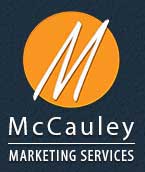The Importance of Protecting Your Medical Practice from Online Threats

There is no getting around it – in 2025, life exists largely online. It is impossible to manage a healthcare practice without electronic systems. While computers and the internet have made life easier in many ways, they also expose us to dangers and malicious actors who abuse these systems for their financial gain. Attacks against healthcare practices continue to grow, and for medical professionals, the consequences of becoming a victim of one of these scams can be severe. Today, we want to discuss a new scam spreading across the internet, the impact malware and ransomware can have on a medical practice, and some practical steps you can take to protect your practice today.
The new fake CATCHPA scam:
You’ve undoubtedly been asked to prove your humanity when visiting certain websites. You know what I’m talking about – the little prompt that appears asking you to confirm that you are not a robot. These prompts are called CAPTCHA. Typically, after you check the box confirming that you are human, you will be greeted with a series of pictures and a request to click specific pictures. Upon doing so, CAPTCHA confirms you are human and allows you to proceed to the site.
Now, with this new CAPTCHA hijack, instead of being presented with a series of pictures, you are presented with a prompt asking you to complete additional verification steps. These steps take you through the process of installing malware on your computer, allowing malicious actors to steal your information and data. This can spell disaster for medical businesses, as it is not only your data at risk but also your patients’ data.
The impact of malware on medical practices:
In September 2024, Texas Tech University Health Services Center was the victim of a ransomware attack. As a result, over 1 million patients were compromised, and their protected health information (PHI) was and still is available for download on the dark web. This attack has cost HCS over $2 million to resolve, not including the loss in revenue. These types of attacks occur often, and it isn’t just large medical practices that are targeted. Small practices face the same amount of risk and threat as large hospitals or medical centers. Many practices operate under a false sense of security, thinking these attacks won’t happen to them. The truth is, you don’t have to be a direct target of a hacker or malicious group to become a victim. Something as simple as clicking a scam link in an email can be the catalyst to a malware or ransomware event that has the potential to irreparably harm your practice.
How can I protect my medical practice?
One of the most important steps you can take to safeguard your medical practice against various malicious scams is to ensure that you have strong network and device security in place. Engaging the services of IT and network security personnel to tailor a plan to your practice is your first line of defense. Antivirus software, firewall protection, and multi-factor authentication should all be present in your practice. HHS OCR is updating the Security Rule of the Health Insurance Portability and Accountability Act of 1996 (HIPAA) to include making multi-factor authentication mandatory in many situations.
Another important component in protecting your data is educating your staff on how to spot fraudulent and malicious attacks. Hold regular trainings throughout the year that teach your staff how to identify email scams, fraudulent URLs or links, and other types of common online attacks. The more you know, the better you can be prepared.
Advancements in technology are great for us and our businesses, but they do come with a risk. Malicious actors will always be a threat, and we must continue to evolve our strategies to combat them successfully. At McCauley Marketing Services, our team is just as concerned with the security of your healthcare practice as we are with the success of your marketing plan, so if you have any questions about how to protect yourself best, please don’t hesitate to contact us today. You can also follow us on Facebook and Instagram for tips and updates.
